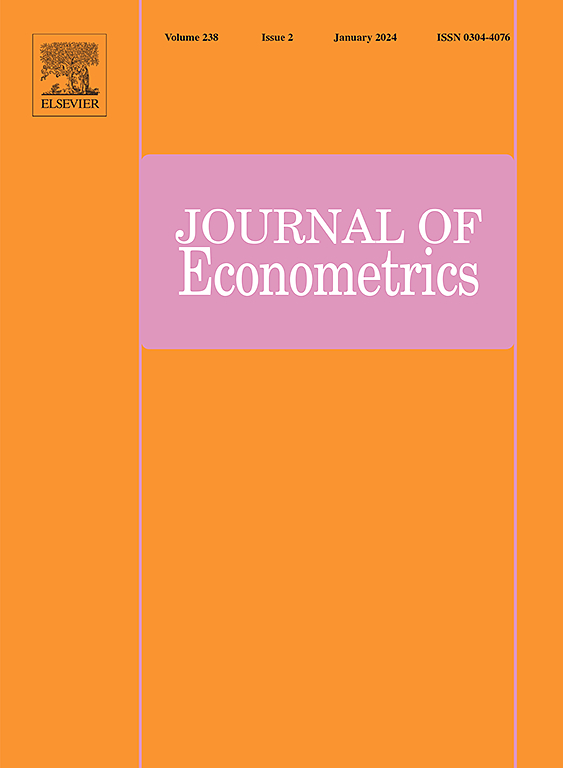High-dimensional model-assisted inference for treatment effects with multi-valued treatments
IF 9.9
3区 经济学
Q1 ECONOMICS
引用次数: 0
Abstract
Consider estimation of average treatment effects with multi-valued treatments using augmented inverse probability weighted (IPW) estimators, depending on outcome regression and propensity score models in high-dimensional settings. These regression models are often fitted by regularized likelihood-based estimation, while ignoring how the fitted functions are used in the subsequent inference about the treatment parameters. Such separate estimation can be associated with known difficulties in existing methods. We develop regularized calibrated estimation for fitting propensity score and outcome regression models, where sparsity-including penalties are employed to facilitate variable selection but the loss functions are carefully chosen such that valid confidence intervals can be obtained under possible model misspecification. Unlike in the case of binary treatments, the usual augmented IPW estimator is generalized to ensure just-identification of parameters from new calibration equations. For propensity score estimation, the new loss function and estimating functions are directly tied to achieving covariate balance between weighted treatment groups. We develop practical algorithms for computing the regularized calibrated estimators with group Lasso by innovatively exploiting Fisher scoring, and provide rigorous high-dimensional analysis for the resulting augmented IPW estimators under suitable sparsity conditions, while tackling technical issues absent or overlooked in previous analyses. We present simulation studies and an empirical application to estimate the effects of maternal smoking on birth weights. The proposed methods are implemented in the R package mRCAL.
多值治疗效果的高维模型辅助推论
根据高维环境下的结果回归和倾向评分模型,考虑使用增强的反概率加权(IPW)估计器对多值治疗的平均治疗效果进行估计。这些回归模型通常是通过基于似然估计的正则化方法拟合的,而忽略了拟合函数在随后的治疗参数推断中是如何使用的。在现有方法中,这种单独的估计可能会遇到已知的困难。我们开发了用于拟合倾向得分和结果回归模型的正则化校准估计方法,其中采用了包括稀疏性惩罚的方法来促进变量选择,但损失函数经过了精心选择,因此在可能的模型错误规范下也能获得有效的置信区间。与二元处理的情况不同,通常的增强 IPW 估计器是通用的,以确保从新的校准方程中识别参数。对于倾向评分估计,新的损失函数和估计函数直接关系到加权治疗组之间协变量的平衡。我们通过创新性地利用费雪计分,开发了计算组 Lasso 正则化校正估计器的实用算法,并在适当的稀疏性条件下,对由此产生的增强 IPW 估计器进行了严格的高维分析,同时解决了以往分析中缺乏或忽略的技术问题。我们介绍了模拟研究和实证应用,以估计产妇吸烟对出生体重的影响。提出的方法在 R 软件包 mRCAL 中实现。
本文章由计算机程序翻译,如有差异,请以英文原文为准。
求助全文
约1分钟内获得全文
求助全文
来源期刊

Journal of Econometrics
社会科学-数学跨学科应用
CiteScore
8.60
自引率
1.60%
发文量
220
审稿时长
3-8 weeks
期刊介绍:
The Journal of Econometrics serves as an outlet for important, high quality, new research in both theoretical and applied econometrics. The scope of the Journal includes papers dealing with identification, estimation, testing, decision, and prediction issues encountered in economic research. Classical Bayesian statistics, and machine learning methods, are decidedly within the range of the Journal''s interests. The Annals of Econometrics is a supplement to the Journal of Econometrics.
 求助内容:
求助内容: 应助结果提醒方式:
应助结果提醒方式:


